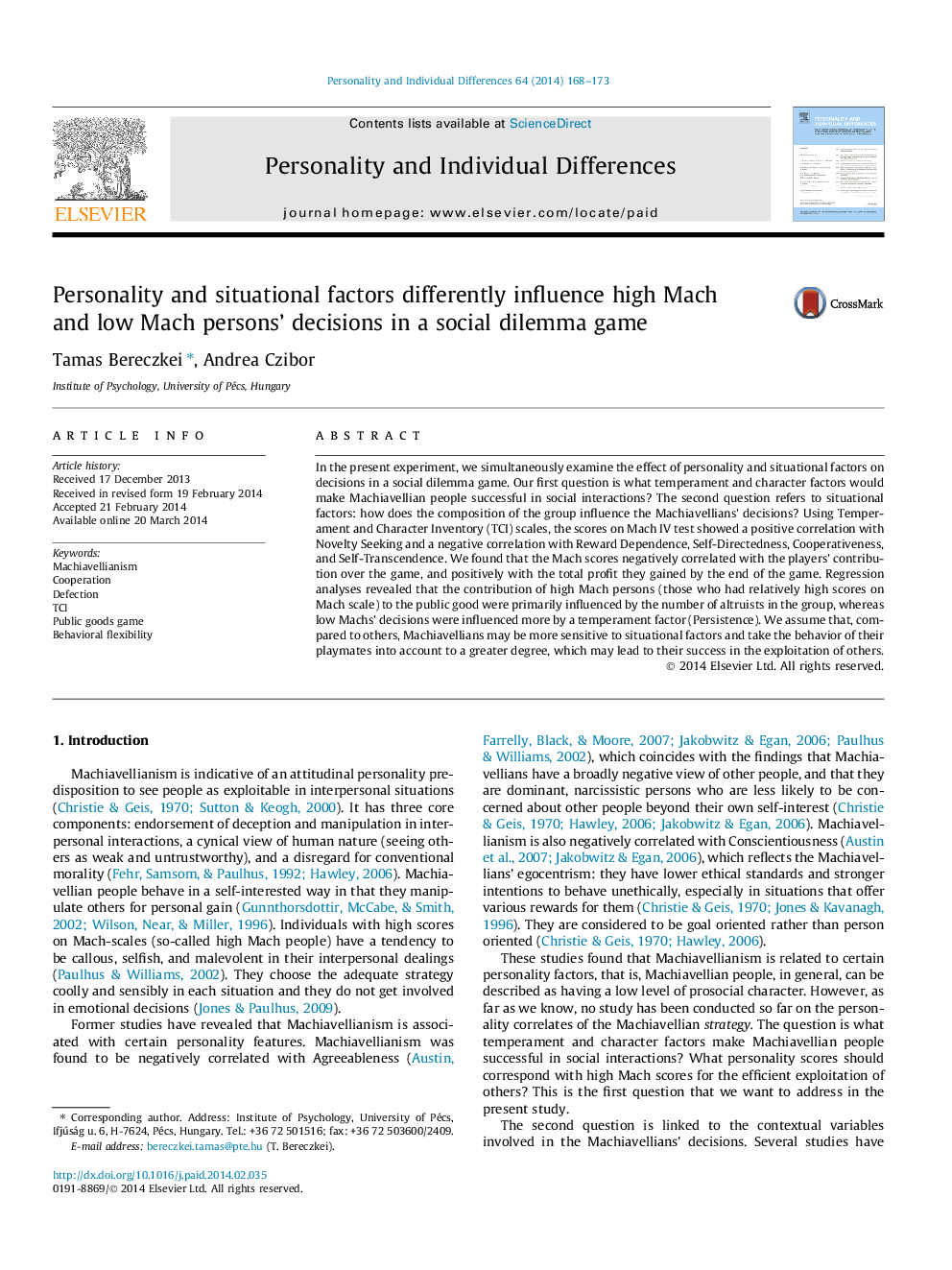| Article ID | Journal | Published Year | Pages | File Type |
|---|---|---|---|---|
| 7252398 | Personality and Individual Differences | 2014 | 6 Pages |
Abstract
In the present experiment, we simultaneously examine the effect of personality and situational factors on decisions in a social dilemma game. Our first question is what temperament and character factors would make Machiavellian people successful in social interactions? The second question refers to situational factors: how does the composition of the group influence the Machiavellians' decisions? Using Temperament and Character Inventory (TCI) scales, the scores on Mach IV test showed a positive correlation with Novelty Seeking and a negative correlation with Reward Dependence, Self-Directedness, Cooperativeness, and Self-Transcendence. We found that the Mach scores negatively correlated with the players' contribution over the game, and positively with the total profit they gained by the end of the game. Regression analyses revealed that the contribution of high Mach persons (those who had relatively high scores on Mach scale) to the public good were primarily influenced by the number of altruists in the group, whereas low Machs' decisions were influenced more by a temperament factor (Persistence). We assume that, compared to others, Machiavellians may be more sensitive to situational factors and take the behavior of their playmates into account to a greater degree, which may lead to their success in the exploitation of others.
Related Topics
Life Sciences
Neuroscience
Behavioral Neuroscience
Authors
Tamas Bereczkei, Andrea Czibor,
